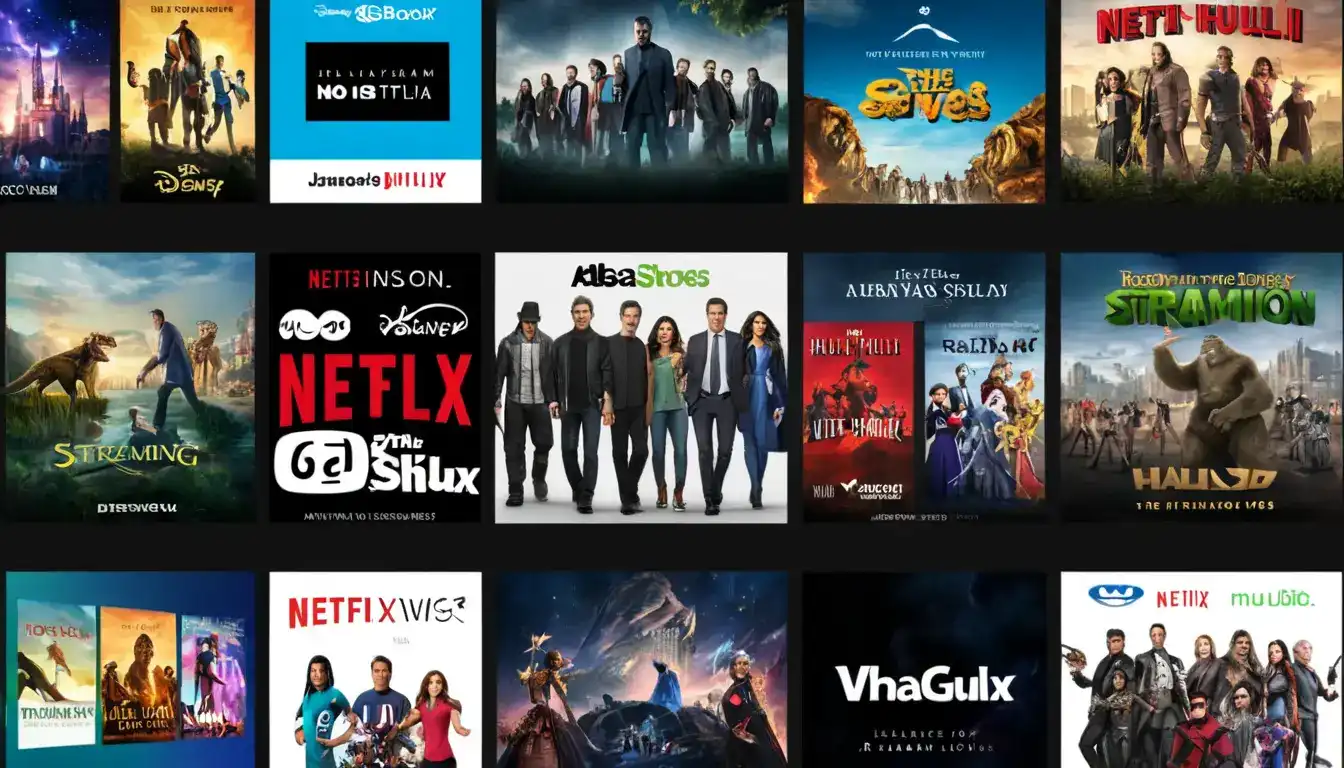Digital Citizenship: Future Ed Tech Use
Emily Willis

Photo: Digital Citizenship: Future Ed Tech Use
Navigating Tomorrow's Classroom: The Power of Digital Citizenship in Future Ed Tech Use
Remember when "digital citizenship" just meant not talking to strangers online and being careful what you posted? Well, times have changed! Today, as education technology (Ed Tech) rockets forward, the concept of being a good digital citizen has become so much richer, more complex, and absolutely essential. It's no longer just about avoiding pitfalls; it's about actively shaping a positive, responsible, and empowering digital future for everyone, especially in our classrooms.
The landscape of learning is constantly evolving. From AI-powered personalized learning platforms to virtual reality field trips, the future of education is here, and it's incredibly exciting. But with great technological power comes great responsibility! This article will explore what digital citizenship truly means in the age of advanced Ed Tech, offering practical insights and actionable steps for students, parents, and educators to thrive in this thrilling new era.
What is Digital Citizenship, Anyway?
At its heart, digital citizenship is about being a responsible, safe, and ethical member of the online world. Think of it like being a good citizen in your community, but applied to the internet and digital spaces. Fifteen years ago, it primarily focused on internet safety. Today, it encompasses how students use digital tools, think critically about their digital lives, and participate in safe, healthy, and responsible ways. It's about understanding your rights and responsibilities, knowing how to navigate digital environments, and making smart choices that benefit yourself and others.
Why does this matter so much now? Because our lives, and especially our children's education, are increasingly intertwined with technology. From online assignments and collaborative projects to researching information and connecting with peers globally, Ed Tech is transforming how we learn. Without a strong foundation in digital citizenship, the incredible potential of these tools can be overshadowed by risks like misinformation, cyberbullying, and privacy concerns.
The Rise of Ed Tech: A Double-Edged Sword?
Educational technology has experienced a boom, especially with the shift to blended and online learning. Digital textbooks, interactive applications, virtual forums, and personalized content delivery are becoming commonplace. These tools offer amazing benefits: personalized learning experiences, rapid feedback, and access to a wealth of information. Imagine a student struggling with a concept getting immediate, tailored support from an AI tutor, or exploring ancient Rome through an immersive VR experience!
However, this rapid advancement also brings challenges. The sheer volume of personal data collected by Ed Tech tools raises significant privacy concerns. There's also the potential for algorithmic bias in AI systems, the spread of misinformation, and the ever-present threat of cyberbullying. It's a bit like driving a powerful new car – it can take you amazing places, but you need to know the rules of the road and how to handle it responsibly.
Navigating the Digital Classroom: Key Pillars of Future Digital Citizenship
To truly harness the power of future Ed Tech, we need to focus on several key pillars of digital citizenship. These aren't just abstract concepts; they are practical skills that empower individuals to thrive in a connected world.
Digital Literacy and Critical Thinking in a Tech-Driven World
In an age where information is abundant and often overwhelming, digital literacy and critical thinking are paramount. Digital literacy goes beyond just knowing how to use a computer; it involves the ability to locate, evaluate, and synthesize information effectively and responsibly. This means being able to discern credible sources from unreliable ones, identify bias, and understand how algorithms might shape the information you see.
With the rise of AI, this skill becomes even more crucial. Students need to learn how to use AI tools ethically, understand their limitations, and critically assess the information they generate. For example, an AI might produce information that is completely fabricated or biased if its training data is skewed. Teaching students to question, verify, and analyze information is essential for navigating this new frontier.
- Actionable Tip: Encourage students to "fact-check" information from multiple sources, even if it comes from an Ed Tech platform. Discuss how different perspectives can influence online content.
Protecting Your Digital Footprint and Data Privacy
Every click, every post, every online interaction leaves a digital footprint – a trail of data that tells a story about you. In the educational context, Ed Tech platforms collect a wide range of student data, from grades and attendance to learning styles and even behavioral observations. Protecting this personal information is a core aspect of digital citizenship.
Parents and students need to understand what data is being collected, how it's being used, and who has access to it. Robust privacy settings, strong, unique passwords, and an awareness of privacy policies are vital. Schools and Ed Tech companies also have a significant responsibility to safeguard student data, complying with privacy laws like FERPA (Family Educational Rights and Privacy Act) and COPPA (Children's Online Privacy Protection Act). Data breaches in education have been a concern, emphasizing the need for strong cybersecurity measures.
- Actionable Tip: Regularly review privacy settings on all educational platforms and discuss with your children the importance of not sharing personal information online without permission. Ask schools about their data privacy policies for Ed Tech tools.
Promoting Online Respect and Preventing Cyberbullying
The digital world is a social space, and just like in the real world, respectful interaction is key. Digital citizenship involves understanding online etiquette (netiquette), showing empathy, and contributing positively to online communities. Unfortunately, cyberbullying remains a serious issue, with a significant percentage of teens experiencing it.
Future Ed Tech can play a role here, both in providing platforms for positive collaboration and in offering tools for monitoring and prevention. However, the human element remains paramount. Teaching students how to recognize, report, and respond to cyberbullying, whether they are a target or a bystander, is crucial. Cultivating a positive school climate, implementing social-emotional learning, and engaging families are all effective strategies.
- Actionable Tip: Encourage open communication about online experiences. If you or your child encounter cyberbullying, document incidents and report them to the school or relevant authorities.
Embracing Digital Well-being and Balanced Screen Time
With more learning happening on screens, digital well-being and managing screen time are increasingly important aspects of digital citizenship. It's about finding a healthy balance between online and offline activities to support overall physical and mental health. Excessive screen time can affect focus, sleep quality, and eye strain.
Future Ed Tech should be designed to promote active learning and engagement, rather than passive consumption. For example, using interactive simulations or collaborative project tools, rather than just watching long videos. Families can create "screen-free zones" and set clear limits for technology use. Being a positive role model by managing your own screen time is also incredibly impactful.
- Actionable Tip: Establish a family media plan with clear rules for screen time, including tech-free bedtimes and regular breaks. Encourage outdoor activities and offline hobbies to balance digital engagement.
Ethical AI and Responsible Innovation in Education
As artificial intelligence becomes more integrated into Ed Tech, understanding its ethical implications is vital for digital citizens. AI offers incredible potential for personalized learning, automated assessments, and administrative efficiency. However, concerns about bias, fairness, transparency, and accountability need to be addressed.
For example, if an AI grading system is biased, it could lead to unfair evaluations for certain students. The "black box" nature of some AI algorithms makes it difficult to understand how they arrive at decisions, raising questions about transparency. Digital citizens of the future will need to be aware of these issues and advocate for the ethical design and deployment of AI in education. This includes ensuring AI complements, rather than replaces, the human touch in education, fostering critical thinking, creativity, and social skills.
- Actionable Tip: Engage in discussions about the ethical use of AI in education. Ask questions about how AI tools are designed, trained, and monitored for fairness and transparency in your school's Ed Tech.
Actionable Steps for Parents, Educators, and Students
Fostering strong digital citizenship in the age of future Ed Tech is a shared responsibility. Here are some practical steps for everyone involved:
For Parents and Caregivers:
- Talk Openly: Have ongoing conversations with your children about their online activities, the content they encounter, and the importance of respectful online behavior.
- Set Clear Expectations: Work together to create a family media plan that outlines rules for screen time, online conduct, and privacy.
- Be a Role Model: Demonstrate healthy digital habits yourself.
- Stay Informed: Keep up-to-date on emerging Ed Tech trends and potential risks, as well as school policies regarding technology use and data privacy.
Latest ✨
View Allconcept of minimalism as a way to declutter and simplify one's life. It highlights the benefits of minimalism, such as reduced stress, increased focus, and financial freedom.
Emily Willis
The traditional office environment is no longer the only place where productivity happens. Remote work has become a mainstream reality for many businesses, offering benefits such as increased employee flexibility, reduced overhead costs, and access to a wider talent pool.
Emily Willis
practical tips for fostering a love of learning in children. It emphasizes the importance of understanding and catering to diverse learning styles, making learning relevant and engaging, fostering a growth mindset, creating a supportive learning environment, and extending the love of learning beyond the classroom.
Emily Willis
culinary landscapes of Italy, France, and Japan, highlighting the unique and mouthwatering cuisines of each country. It explores the simplicity of Italian cuisine, the elegance of French cuisine, and the delicate dance of flavors in Japanese cuisine. It also delves into the cultural immersion of each country's culinary customs, emphasizing the joy of conviviality in Italy, the celebration of refinement in France, and the harmony of flavors and aesthetics in Japan.
Emily Willis
Business
View All
June 9, 2025
Achieve Customer Service ExcellenceMaster customer service excellence to build lasting loyalty & drive growth. Get your blueprint for success and exceed customer expectations!
Emily Willis

June 8, 2025
Optimize Your Supply ChainOptimize your supply chain for business success! Learn strategies to cut costs, boost efficiency, & satisfy customers with our comprehensive guide.
Emily Willis

June 8, 2025
PR Essentials for Business ExposureMaster public relations to boost your business. Discover core PR essentials for building trust, enhancing brand visibility, and driving growth.
Emily Willis
Economy
View AllDeflation explained: Discover why falling prices can harm the economy. Learn its causes, effects, and how to protect your finances.
Read MoreLooking to save on car insurance? Discover how to get accurate, personalized car insurance quotes online with this comprehensive guide. Fast, easy, and cost-effective.
Read MoreDeveloped economies face a new global order. Understand how they're adapting to multipolar power, tech disruption, and climate change for future prosperity.
Read MoreEntertainment
View All
August 4, 2024
Profiles of Famous Artists Who Inspire the Younger Generationthe inspirational aspects of famous artists such as Vincent van Gogh, Frida Kahlo, Pablo Picasso, Banksy, Yayoi Kusama, Jean-Michel Basquiat, Georgia O'Keeffe, Andy Warhol, Kehinde Wiley, and Ai Weiwei. It highlights their perseverance, innovation, authenticity, social commentary, mental health advocacy, and representation, among other qualities, and how these aspects continue to inspire young artists to pursue their creative dreams.
Emily Willis

August 5, 2024
Fandom's Power: Passionate Communities and Cultural ImpactFandoms are dedicated groups of fans who come together around a shared love for a book series, movie franchise, or other interest. They provide a sense of belonging and community for individuals, particularly those who may feel like outsiders in their everyday lives.
Emily Willis

August 4, 2024
The Evolution of Streaming Services Such as Netflix, Disney+, Hulu, and the Implications for the Traditional Entertainment IndustryThe rise of streaming services has revolutionized the entertainment industry, offering on-demand access to a vast library of content through internet-connected devices. Platforms like Netflix, Disney+, and Hulu have diversified their content libraries, reshaped consumer behavior, and challenged traditional distribution models. Technological advancements have enhanced streaming experiences, while economic and cultural implications have led to global market expansion and increased investment in original content production. The future of the streaming industry will be shaped by competition, convergence of media and technology, and the need for adaptation to changing consumer preferences. Embracing digital transformation and strategic partnerships will be crucial for stakeholders in navigating the evolving landscape of modern entertainment.
Emily Willis
Health
View Allmaintaining good health and well-being through nutritional choices. A balanced diet, incorporating whole foods, staying hydrated, consuming nutrient-dense foods, managing portion sizes, practicing mindful eating, eating regular meals and snacks, considering supplements, and adopting sustainable eating practices are all highlighted as effective strategies for enhancing overall.
Emily Willis
Quality sleep is essential for overall health and well-being, impacting physical, cognitive and emotional functioning. Lack of quality sleep can lead to a variety of health issues, including weakened immune function, heart problems, weight gain and cognitive impairment.
Emily Willis
cultivating healthy lifestyle habits to improve overall well-being. It focuses on three pillars of well-being: nutrition, exercise, and sleep. It provides tips on how to incorporate these practices into daily routines, such as eating a variety of foods, finding enjoyable forms of exercise, and establishing a consistent sleep schedule.
Emily Willis
Trending 🔥
View All
2
3
5
6
7
8
9
10
Sports
View AllAugust 4, 2024
Sports Technology Innovation: Revolutionizing Training and Performance Analysis
Read MoreAugust 5, 2024
Celebrating Sports Legends: Honoring Iconic Figures and Their Enduring Impact
Read MoreAugust 4, 2024
The Importance of Mental Training and Psychological Strategies in Helping Athletes Reach Their Peak Performance on the Field
Read MoreTechnology
View All
August 4, 2024
Revolutionizing Healthcare with Artificial Intelligence: Current Trends and Future Prospects
Artificial Intelligence (AI) is transforming the healthcare industry by improving diagnostic accuracy, personalizing treatment plans, and accelerating drug discovery. AI applications in diagnostics, imaging, patient care, and drug development are enhancing efficiency and patient outcomes. However, ethical considerations such as data privacy and algorithm bias must be addressed. The future of AI in healthcare looks promising with advancements in natural language processing, robotic surgery, and remote patient monitoring. Embracing AI technologies responsibly will lead to a more accessible, efficient, and patient-centered healthcare system.

August 5, 2024
How to Choose the Right Cyber Security Solution for Your Business
In today's digital age, businesses face numerous cybersecurity threats and need to protect sensitive data. To choose the right cybersecurity solution, businesses should understand their specific needs, assess potential threats, evaluate different solutions, consider ease of use and integration, evaluate the provider's reputation and support, conduct a cost-benefit analysis, and implement and monitor the solution effectively.

August 5, 2024
The Impact of AI on the Future of Work and Education
AI is rapidly advancing and reshaping industries, economies, and societies, especially in the areas of employment and education. In the workplace, AI is changing roles through automation and creating new job opportunities. The future of work will most likely involve collaboration between humans and AI, requiring workers to develop new skills and engage in lifelong learning.

August 4, 2024
The Rise of Edge Computing: Transforming Data Processing
Edge computing is a distributed computing model that processes data closer to its source, reducing latency, saving bandwidth, and enhancing security. It is transforming industries such as manufacturing, healthcare, retail, transportation, and energy by enabling real-time data processing and improving operational efficiency.





















